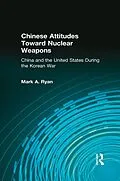This book examines the crucial formative period of Chinese attitudes toward nuclear weapons - the immediate post-Hiroshima/Nagasaki period and the Korean War. It provides a detailed account of U.S. actions and attitudes during this period and China's response, which was especially acute after both countries had entered the Korean conflict as enemies. This response dispels some of the myths that have long existed regarding China's perceptions of nuclear war.
Inhalt
In language that is understandable to non-economists, this work introduces readers to the interrelationship of politics and economics in America - how economics influences public policy and how public policy can impact the economy. Readers learn how the U.S. economy works (domestically and in its global connectedness), how to measure economic performance, how government intervenes in the market to influence economic performance and redistribute resources, and how policymakers act to protect the public interest in an economic system based on private interests. The author provides historical background for contemporary problems. He explains basic economic and policymaking concepts in an issue-relevant context, with concrete examples inspired by ongoing policy debates in Washington regarding production and employment, commodity prices, Social Security and Medicare, budget deficits, national debt, trade deficits, and more.
